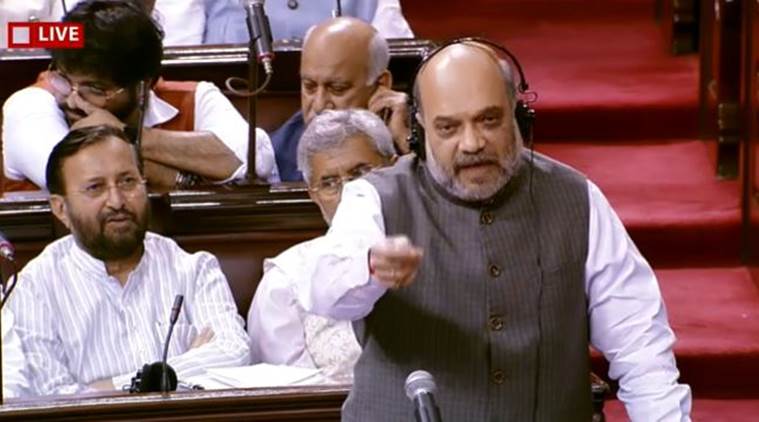No citizens would be marked ‘doubtful’ and no documents would be asked for in NPR: Amit Shah
 NEW DELHI : In a significant clarification on the National Population Register (NPR), the Union Home Minister Amit Shah has said in the Parliament on Thursday that no document would have to be submitted and no one would be marked in ‘D’ (doubtful) category.
NEW DELHI : In a significant clarification on the National Population Register (NPR), the Union Home Minister Amit Shah has said in the Parliament on Thursday that no document would have to be submitted and no one would be marked in ‘D’ (doubtful) category.
“No document needs to be submitted. You can give whatever information you have and leave the other questions blank,” Amit Shah said. Congress leader Ghulam Nabi Azad questioning home minister stressed on the point of “D” will be removed or not on which the Home Minister gave him assurance by saying, “No one needs to fear about NPR. No one will be marked doubtful in the updating process.”
Amit Shah clarified that no citizens would be marked ‘doubtful’ and no documents would be asked for in NPR. While replying to a remark made by Congress’ Kapil Sibal, he also said that if anybody doesn’t have any document, he or she would not have to submit that.
Replying to a discussion on the Delhi violence in Rajya Sabha, Amit Shah said: “No document needs to be submitted. You can give whatever information you have and leave the other questions blank.”
As Congress leaders questioned whether “D” would be removed, the Home Minister replied: “No one needs to fear about NPR. No one will be marked doubtful in the updating process.” He also asked the Leader of Opposition, Ghulam Nabi Azad of the Congress, to visit him along with other opposition leaders to clarify doubts on NPR.
The opposition Congress was skeptical about the clarification. “It is not correct of the Home minister saying they will not be asking for these documents, what is the use of this exercise then,” questioned the party’s Kapil Sibal.
Several states, ruled by the opposition Congress, Left-ruled Kerala, Trinamool-ruled Bengal and even Bihar, ruled by BJP ally Nitish Kumar, have refused to carry out the NPR exercise, which has seen by many to be a precursor to the controversial National Register for Citizens (NRC), which has provoked protests nationwide along with the citizenship law CAA.
Those objecting to the Citizenship Amendment Act (CAA), NRC and NPR believe that a combination of the three will be used to leave thousands of Muslims stateless. The CAA provides for Indian citizenship for non-Muslims who fled neighboring Pakistan, Afghanistan and Bangladesh due to religious persecution and entered India before 2015.
The NPR was carried out in 2010 as part of the census; the latest forms have fueled massive anger and concern because of additions like a question on one’s parents’ place of birth — producing such documents is a tough ask for many. There was also fear over reports that if people did not give answers to the NPR questions, houses would be marked “D”.
In the 2020 NPR, there are eight additional data fields that ask for the parents’ birthplace and date of birth, a person’s present and permanent address, mother tongue and nationality.

